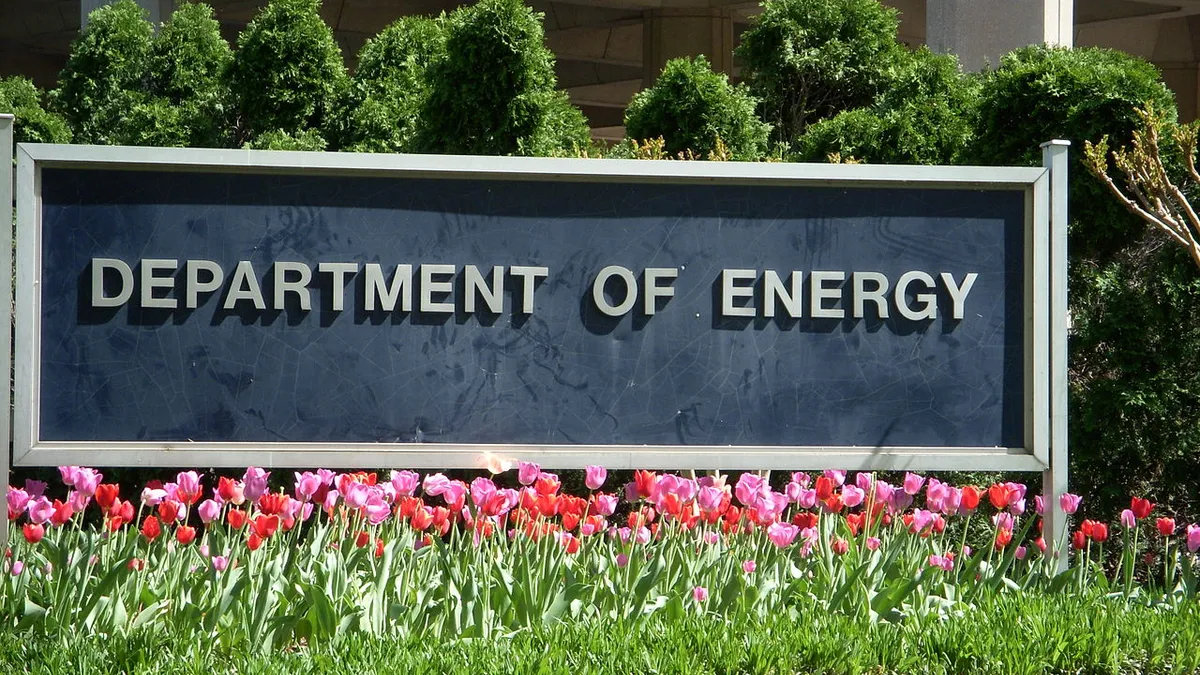Dive Brief:
- Consumers and businesses could save $1.1 trillion on utility bills through 2050 if the Biden administration directs the U.S. Department of Energy to update efficiency standards for 47 types of appliances and products, according to a new report by the Appliance Standards Awareness Project (ASAP) and the American Council for an Energy-Efficient Economy (ACEEE).
- DOE is required to review national appliance standards every six years, but efficiency experts say the agency has missed dozens of deadlines under the Trump administration. DOE did not respond to questions about its progress updating the standards.
- While Trump has not conceded the election, consumer advocates are eager for the Biden administration to take over the DOE, where they see the potential for efficiency to provide bill savings along with greenhouse gas emissions reductions and cuts to peak demand.
Dive Insight:
Appliance efficiency standards have traditionally been bipartisan policy, but advocates say there has been little progress made on standards updates required by law since Trump took office.
According to the ASAP and ACEEE report, since the beginning of the Trump administration the agency has "not completed a single rulemaking to update appliance standards" and has missed 28 legal deadlines for reviewing appliance standards and 21 deadlines for updating test procedures.
Products include water heaters, clothes washers, electric motors and commercial and industrial fans.
In two separate lawsuits, more than a dozen states and six environmental and consumer groups have recently sued DOE over missed appliance standards updates. They say the federal government is costing consumers billions of dollars every year while also increasing pollution.
The ASAP and ACEEE report concludes that updating standards for 47 products would reduce cumulative carbon dioxide emissions through 2050 by 1.5 to 2.9 billion metric tons, save the average household $230 annually on utility bills by 2035, and reduce peak electricity demand by almost 90 GW by 2050.
The peak demand reduction would be "equivalent to about 13% of current total peak demand, allowing for faster decarbonization of the electric grid at a lower cost," the report concluded. Updated standards for residential water heaters "provide the greatest potential CO2 reductions."
Standards could be met using current technology and be adopted through rulemakings over the next few years, ASAP Technical Advocacy Manager Joanna Mauer said at a Tuesday presentation of the research. Mauer is the lead author of the report.
According to ASAP Executive Director Andrew deLaski, the Biden administration can take immediate steps toward improved appliance efficiency. DOE has been working on some standards this year, particularly some in the pre-rulemaking stage, that could allow the new administration to move forward "relatively quickly," he said Tuesday.
In addition, deLaski said, there were were some standards that were proposed at the end of the Obama administration, which were held back by Trump and can be advanced relatively quickly.
"The Biden administration is not starting from a standstill," said deLaski. "Some work has already been done to allow some standards to be proposed in the first year or two of Biden's administration."
The report also highlighted rule changes completed by the Trump administration that efficiency advocates want to see reversed. Those include changes to light bulb standards and reversing changes to the DOE's "process rule," which governs how new standards are set.
ASAP and ACEEE also suggested rescinding a proposed rule directing DOE to create separate product classes for non-condensing gas space- and water-heating products. Efficiency advocates say the change, made in response to a request from the gas industry, will freeze standards for residential furnaces and commercial water heaters that use natural gas or propane.
But according to the gas industry, a new product class is necessary because new standards would otherwise effectively ban non-condensing gas appliances. In comments filed jointly by the American Public Gas Association, the Natural Gas Supply Association, the National Association of Home Builders and others, the groups argue forcing those appliances out of the market would violate the Energy Policy and Conservation Act of 1975.
In an email, APGA President and CEO Dave Schryver said the group "looks forward to working with the new Administration on a number of issues including energy efficiency." But he added that efficiency measures "must be based on sound science, transparent data, and be economically justifiable."
Mauer noted that ASAP and ACEEE constrained their study to look at only what DOE can do with clear existing administrative authority. "We didn't look at, for example, what the potential emissions reductions would be from standards that would effectively eliminate gas appliances," she said.
The gas industry says it has a role to play in the energy transition.
APGA "strongly believes that the direct use of natural gas in residential and commercial buildings is critical to achieving our country’s environmental objectives," Schryver said.















